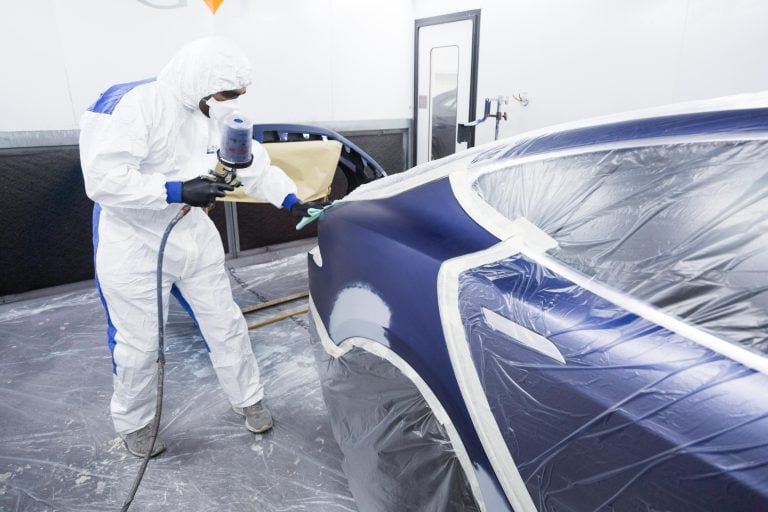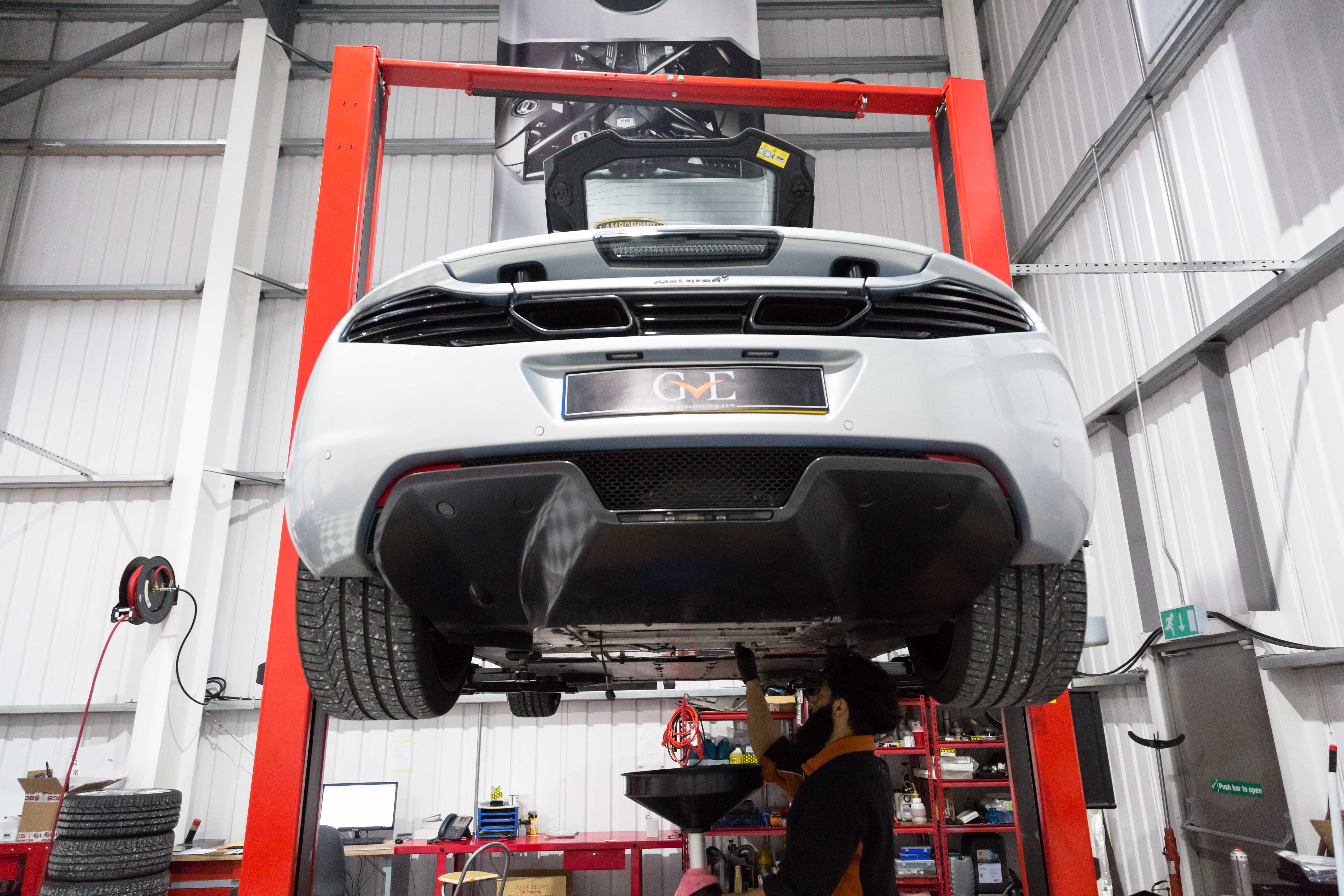- Servicing Case Studies
Understanding OEM vs Aftermarket Parts in Your Car Service | GVE London – Blog
Confused between OEM and aftermarket car parts? Discover key differences, pros, cons, cost, fitment, and warranty impact in this simple guide from GVE London.
Post the first couple of car services, many people find themselves wondering if they should stick to OEM or just go for cheaper aftermarket parts.
It is a decision they leave up to the mechanic, but it is really a decision you have to make. However, most people aren’t aware of what it really entails. Let’s break down, in the simplest of language, the difference between these two types of parts.
What Are OEM Parts?
OEM stands for Original Equipment Manufacturer, so these are the parts made by the same company that builds your car or an authorised supplier. For example, if you drive a BMW and need a new brake pad, an OEM part would come directly from BMW or a company BMW officially works with. The part used is the same one your car came with when you first drove it off the showroom floor.
What About Aftermarket Parts?
Aftermarket parts, on the other hand, are made by third-party manufacturers that aren’t linked to the original automaker, but they design parts that are intended to perform the same job.
Some are built to closely match the specs of OEM, whilst others are built with different materials, tolerances, or designs. Now, that can be both a good thing and a bad thing, depending on what you’re replacing and what the quality of the part is.
And that’s where the decision gets tricky.
Price Difference
Since this is what most people notice first, let’s talk about it. Yes, aftermarket parts, generally speaking, are much cheaper than OEM parts. If you’re on a tight budget, especially for any non-critical components, that can be really helpful.
However, cheaper hardly ever translates to better or even equal. Aftermarket parts are able to reach that price point by cutting corners. They may use materials that wear out faster, lack proper corrosion resistance, and have a number of other things.
Read Also: How to Ensure Quality Workmanship in Accident Repairs?
Not All Aftermarket Parts
One should keep in mind that not all aftermarket parts are subpar or cheaper, for that matter. Aftermarket is not synonymous with lower quality; it merely means not built by the company or an official manufacturer. There are many aftermarket parts creators that match the quality of OEMs, or create parts that serve a different purpose than the OEMs and outperform them.
So, it all depends on whom you’re buying from and what.
Quality & Fitment
As we mentioned, OEM parts are literally the parts that the car is built with, so car service centre like GVE London stick with them for quality assurance unless stated otherwise.
Aftermarket parts, on the other hand, can vary. Some fit well. Some don’t. And in worst-case scenarios, poor fitment can cause damage or compromise safety. This is especially important for body panels, suspension components, or anything involving electronics.
Warranty Implications
Companies love OEMs and hate aftermarket parts. Automakers will only use and recommend OEMs for car servicing, and using aftermarket parts for crucial parts will void your warranty. Check your terms for specifics.
Conclusion
When it comes to OEM vs Aftermarket Parts, there’s no one-size-fits-all answer. If you drive an everyday commuter and want to save money, good-quality aftermarket parts might be fine. If you own a high-performance or luxury car, OEM is often the safer route. However, at the same time, if you work with a supercar service centre like GVE London, we can help you with both OEM parts that maintain your warranty as well as high-grade aftermarket parts.
We’re a trusted car servicing centre in London and transparent about all our work. Head on down to our facility and we’ll take care of all your automotive requirements. Furthermore, being enthusiasts, we not only perform the usual repairs and service but can work on customisation, modifications and detailing as well. To know more, hop on a call with us today!
Frequently Asked Questions
Not automatically. However, if the aftermarket part causes damage or doesn’t meet manufacturer standards, you could face complications during a warranty claim. It’s best to check your policy or consult a service advisor.
Not necessarily. Some aftermarket parts perform just as well, or even better, especially in motorsport or high-mileage applications. But quality varies a lot, so brand reputation matters.
OEM parts often have the car maker’s branding or part numbers directly on them. Aftermarket parts won’t. Ask your mechanic to show you the packaging or receipt if you’re unsure.
Contact Us
"*" indicates required fields
OUR SERVICES
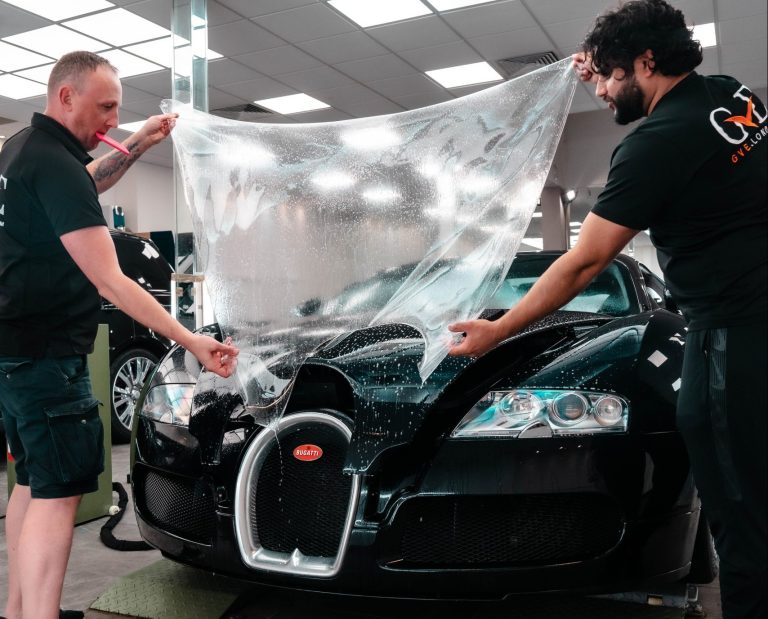
PAINT PROTECTION FILM
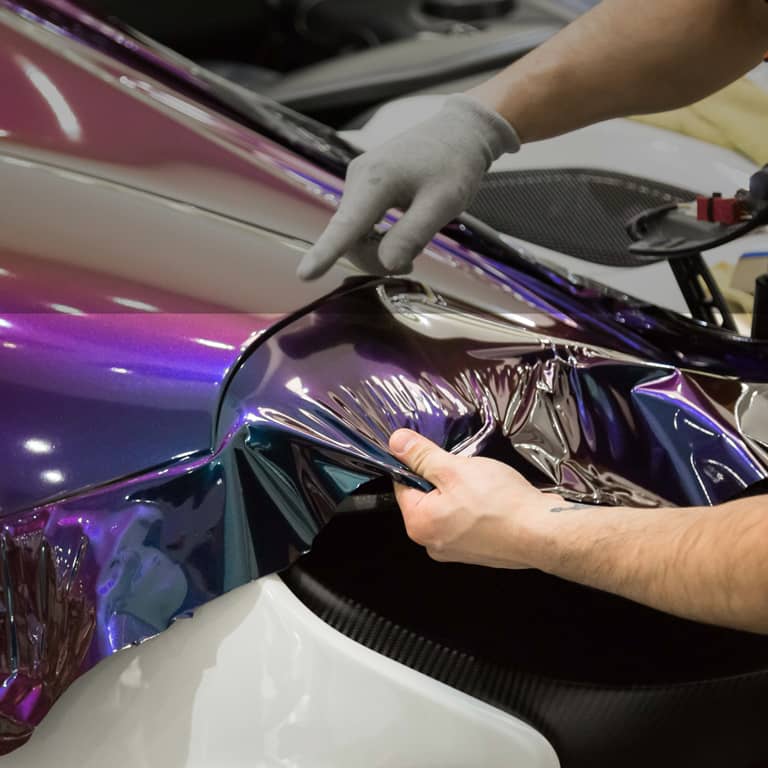
WRAPPING
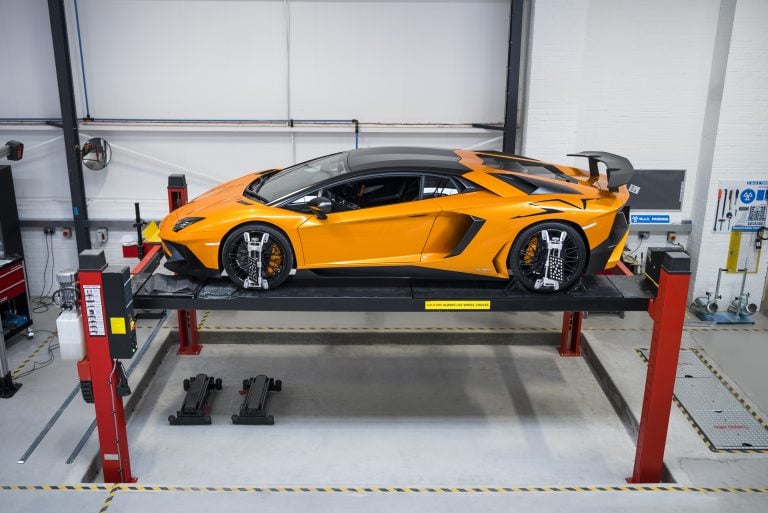
SERVICING
